4-SESSION MINDFULNESS, Resiliency and FOCUS Program for CPAs and BUSY PROFESSIONALS - Overview
This 4-Session Program provides the foundational tools, skills and practices people need to be more present, focused and productive, and to be more resilient to stress and change in their world.
While it is particularly helpful for navigating challenging times like the “Busy Season” for CPAs, the tools are relevant for working smarter and more effectively in all times.
This series is packed with insights and practical tools as it explores the neuroscience behind stress, how to manage your focus in a highly distracting environment, and how to deal with frustration and negativity when things are changing faster than you would like.
At the end of the program participants will have the skills and techniques they need to be:
more resilient to the changes and uncertainty they face today,
less reactive to unmet expectations and frustrations,
more focused on what matters and less distracted by their thoughts or the digital ‘noise’ around them,
more open to change in their world and able to adapt, pivot or leverage the change in a positive way,
more present and better able to connect and collaborate with other team members, and
happier, be it at work or home!
Each Session is available in a 60-minute, 75-minute or 90-minute version, with longer time frames creating space for more tools, more practice, more discussion and more accountability.
Session 1 - The “What?”, “Why?” and “How?” of Mindfulness and Meditation
Simple, practical, clear explanations, and the tools you need to get started with a daily practice such that you can experience greater calm and focus in your day.
Learning Objectives:
1. Understanding our ‘survival brain’, survival behaviours and how reactivity and Autopilot gets us into trouble.
2. Demystifying the “What?”, “Why?” and “How?” of mindfulness and meditation, and putting it in terms of neuroscience, healthy mind and practicality for the busy professional.
3. Learning tools and skills to calm our nervous system, reframe how we see our world and begin to take control of how we respond.
Breath practices that take only a few minutes, yet provide a noticeable calming effect right away.
A simple meditation practice you can use daily as a way to calm and train your mind, and create more awareness and resilience.
Learning to focus on what’s in your control and having an anchoring slogan to keep your mind on track.
4. Accountability and the tools and practices to create and maintain habit change following the first session.
Session 2 - Focus in the age of distration
One of the most common challenges in the workplace today is staying focused on the work at hand when constantly interrupted. Ironically, the importance for focus has never been greater than it is today. Or seemingly harder to achieve. The technology we enjoy allows us unprecedented productivity through easy access to information, ideas and individuals. It also has the undesired effect of overwhelming us with too much information and fracturing our focus. We live in the age of distraction - where the steady and abundant input from multiple devices, programs, apps and social media connections, as well as the many work, family and social commitments all turn into a fog of distraction.
Guaranteed outcomes for participants from this session include:
30-90 minutes of ‘found’ time in their day,
90-minutes of more productive work during their workday, and
Greater end-of-day satisfaction and joy in life.
Learning Objectives:
1. Review learning from Session 1.
2. Understanding why focus is so challenging for us today.
3. Understanding the neuroscience behind how your ‘survival brain’ responds to uncertainty and an overwhelm of distractions today.
4. Understanding how ineffective some of our current strategies to cope really are.
5. Learning Tools that help you better focus:
a. The Essentialist Mindset
b. Stop Multi-tasking
c. Practice JOMO
d. Manage Your Distractions (Internal and External)
e. Using the Breath and Meditation for Greater Focus
6. Accountability and the tools and practices to create and maintain habit change following the session.
session 3 - Acceptance, Non-judgment and resilience
We all know what it feels like when things don’t go our way or as planned. Most of us can accept the little challenges in our day. But most of us struggle to do the same as people and circumstances create greater havoc and frustration for us. Knowing how to maintain an even keel no matter what life throws at you, how to refocus on what matters most, and how to let go of what’s changed or not in your control, these are the essential skills today. They also contribute to healthy relationships and having more peace and calm in your world.
Learning Objectives:
1. Review learning and how it is going with practice from Sessions 1 and 2
2. Understanding why we get frustrated with circumstances and people in our world.
3. Understanding the neuroscience behind how your ‘survival brain’ reacts to frustration and unmet expectations.
4. Moving past fight, flight and freeze as our instinctual reactions..
5. Learning Tools that help you be more resilient and pivot quicker:
a. Acceptance and Non-judgment
b. Pain vs. Suffering
c. Shifting from unmet expectations to appreciation and acceptance
d. Leveraging discernment and focusing on what’s in your control
e. Self-compassion
6. Accountability and the tools and practices to create and maintain habit change following the session.
session 4 - Thriving through change
We live in a world where the rate of change feels like it is speeding up. Most organizations are undergoing constant change in an effort to keep up with the changing world around them, whether it is work from home, employee expectations, technology or changing customer needs. This constant exposure to change can be overwhelming and destabilizing for people. The key is to understand how your nervous system responds to change (often with resistance) and learn how to expect change, leverage it, learn how to pivot faster and be more at peace with change.
Learning Objectives
1. Review learning and practice from Sessions 1 to 3
2. Understanding the level of change we are experiencing and how that creates stress.
3. Understanding how your ‘survival brain’ reacts to and resists change.
4. Understanding how ineffective some of our current strategies to resist change or cope with it are.
5. Learning Tools that help you:
a. reframe change as growth
b. find the sweet spot for your optimal performance (hint: overwhelm is not optimal and using the breath, reframing and self-care to shift back to optimal).
c. learn to embrace the discomfort of change, accepting that discomfort is part of the process
d. stay grounded and centred such that you can cope with ongoing change over the coming days ahead.
e. leverage gratitude and compassion as ways to recognize the good that is present and to connect with others who may be struggling through this as well.
6. Accountability and the tools and practices to create and maintain habit change following the course.
“Scott brought me a new way of life. I am a more calm and patient person. I am working to build the space between the stimulus and response. It is a big challenge for a person with an accelerated pace like me. I also see that it is possible to simply breathe and live the present, which is fundamental to control anxiety. Thanks, Scott!”
- I. Gomes
Pricing
$3,499* (plus GST) for the 4-Session Program. Ideal for groups of 6 - 12 people, but larger groups of up to 100 can be facilitated.
Includes tailoring the content to the specific context of the organization and the work they do, weekly email tips and reminders, and guided meditation recordings.
* This program may be eligible for BC Job Grant funding. Please contact at Granted Consulting to find out if your company, or your individual training, is eligible.
What makes this different?
PRACTICAL: This program is based on a simple, practical framework that breaks mindfulness into foundational skills. The program is built entirely around experiential learning, which makes the learning engaging, insightful and deep.
REAL: It uses a mix of simple metaphors that make the ideas intelligible and easy to take in. The content is continually put into the context of your people and the real-world challenges the participants brings to each session. This keeps the content real, relevant and practical, allowing participants to “get it” in a way they might not have before.
HABIT CREATION: The process provides a build of skills, starting with the most basic skills and building up to more advanced skills. It then uses repetition, consistency and accountability such that participants actually create new habits and thus get the results they are after.
What are the benefits?
The primary benefits of this training are many and include:
Less stress, less reactivity and greater calm.
More openness to options and alternative ideas, which can lead to greater creativity and better solutions.
More ease in working with chaos and complexity.
Stronger relationships, increased trust and greater collaboration.
More intentional choices.
Greater productivity.
Happier and greater overall life satisfaction!
INSTRUCTOR BIO
Scott is a mindfulness trainer and coach, who gives CPAs and busy professionals the tools they need to delete the overwhelm, focus on what matters most and create the life they want. He gives them strategies to respond to the challenges in their day more mindfully, allowing them to be more focused, productive and happier.
He brings 20 years of designing and delivering highly successful leadership development programs from his former corporate life. He was previously the National Leader of HR for one of Canada’s largest employee-owned engineering and science consulting organizations. Scott draws on his 27 years of corporate experience to connect the concepts of mindfulness with the world of corporate leaders and the analytical minds of busy managers and professionals.
He uses these tools every day in his own life and brings a practical, no-nonsense approach to it all. Scott is happily married to Meghan, is an engaged father of a 16-yr old son (Noah) and 14-year old daughter (Kayla). He is a constant reader, avid mountain biker, passionate espresso maker and lover of craft-brewed IPA’s.
Scott has had the great fortune to work with the brilliant people at Smythe LLP, Manning Elliott LLP, Baker Tilly WM LLP, Odlum Brown, CPA BC, CPA Alberta, BC Hydro, UBC, BCIT, SFU, Urban Systems Ltd., Miller Titerle + Co. LLP, Alexander Holburn Beaudin + Lang LLP, Clark Wilson LLP, Miller Thomson LLP, EA Canada, Galvanize, SAP, Habanero Consulting, Covenant House Vancouver, BC Assessment, Dossier Creative, The Dupuis Langen Group, Brighter Mechanical, plus numerous entrepreneurs and sole practitioners.
Testimonials can be found on the Testimonial Page.

